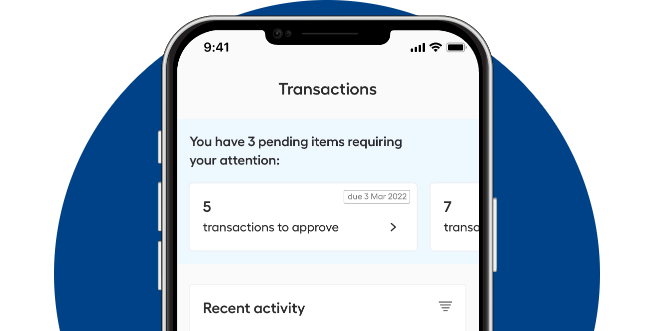Startup loans in India: Everything you need to know

This article covers:
- A Startup Loan in India: An Overview
- What is a Startup Loan in India?
- What is a Startup Loan in India for?
- Startup Loan Eligibility
- General Requirements and Documentation
- Business Loan Interest Rates in India
- How to Get a Startup Loan? Best Business Loans For Startups in India
- Key Takeaways: Try Instarem for your business payments
- FAQs
Hosting approximately 127,433 startups as of 2024, India’s startup ecosystem is thriving and holds a remarkable position in the global startup landscape. This sector positively impacts the nation’s economy by creating employment opportunities and driving economic growth.
Counting on the positive impacts of startups on India’s economy, there is a need for funding support to fuel innovation and growth. Numerous schemes designed to provide startup loans in India, ensuring that ventures have the financial resources to thrive.
If you plan on establishing a startup or taking yours off the ground, this is a good start to understand how the funding schemes work and how to get a startup loan to support your newly founded venture. So keep on reading and find the insights you need in this article.
A Startup Loan in India: An Overview
One of the reasons behind the vast number of startups established in India is the government’s support. The support is given in several ways, but we will focus on the most significant aspect; financial support that provides a startup loan in India.
What is a Startup Loan in India?
A startup loan in India, like other similar programmes in different countries, is a financial instrument meant to provide startups with funding support. The funding is used to help them achieve rapid scalability, which is the central objective of startups.
This scheme is especially essential since securing conventional funding can be challenging for startups. They often lack the assets or cash flow required by traditional lenders, as they prioritise rapid growth over profitability–a risk profile that many traditional lenders may avoid.
Startup loans, besides being more accessible than conventional funding, also offer higher repayment flexibility. The due date is usually longer and the interest rates are typically lower than what’s offered by traditional lenders.
What is a Startup Loan in India for?
A startup loan in India aims to foster growth for the country’s numerous innovation-led ventures. What are the potential areas of this funding scheme? Below are the examples:
- Cash flow: A positive cash flow keeps a startup’s business running. It’s necessary to cover expenses like rent, salaries, raw materials, and operations. Startup loans can help to bridge the gaps for startups that may run low on cash flow.
- Research and development: Startups are built to create products, services, and/or technological innovations. This places significance on the R&D process, which can be costly but is made more feasible with the loans.
- Equipment and infrastructure development: High-quality equipment and infrastructure save startups from costly repair. However, acquiring them in the first place can be expensive, but the loans can help to get around this.
- Talent acquisition: Sourcing top candidates often costs money, especially with the rising competition with other startups. With the loans, startups can afford the effort and hire top talents to accelerate their growth.
- Inventory purchases: Startups may need to purchase inventory to meet customer demand. This can be expensive, as startups often buy in bulk. The loans may provide the necessary funding to manage the expenses.
- Market expansion: Targeting new markets involves market research, marketing, and local operations setup that require sufficient funding. Debt obtained from loans can cover these expenses and help startups scale their expansions.
- Advertising: Funding from the loans can help startups cover advertising campaign expenses, allowing them to target their audience effectively. This will result in greater brand awareness and increased sales.
- Buffer for uncertainties: Startups are prone to uncertainties as they often operate under financial constraints. With the loans, they can secure the necessary funding to keep operations running and reduce finance-related risks.
Startup Loan Eligibility
Startup loans in India have varying eligibility, depending on the lender. However, there are general requirements that most lenders may request, such as:
- Indian citizenship: Applicant must be an Indian citizen aged 21 and above.
- Legal registration: Your startup must be legally registered and have an address in India.
- Business plan: The lender will examine how you use the loans based on your business plan.
- Collateral or personal guarantee: This agreement ties your debt to your assets, which the lender can seize if your startup cannot repay the debt.
- Financial document: The lender will assess your startup’s finances, including revenue growth, profitability, and capital structure, before proceeding with the loan.
General Requirements and Documentation
Each lender may demand different requirements and documentation. However, it is important to have the following documents before applying for a startup loan in India:
- Proof of identity: An Aadhar Card, Passport, Driving Licence, or PAN Card is required to prove your identity.
- Address proof: A proof of address can be provided whether with a copy of a signed lease agreement, a copy of a mortgage statement, or a utility bill is required.
- Photographs: Prepare passport-size photographs.
- Business proof: an ITR, udyam certificate, trade license, GST certificate, or other forms of business proof is required.
- Bank statements: A copy of your bank statements for the last 6 months is required.
- Proof of income: Provide your income tax returns (ITR) or other relevant documentation.
- Signature proof: Provide your bank-verified signature or your signature on a valid ID card.
- Banking details: Present a copy of the first page in your bank account’s passbook.
Business Loan Interest Rates in India
Business loan interest rates can vary greatly depending on the loan provider. As an example, bank institutions in India offer interest rates from 9.5% up to 21%. Factors like the borrower’s credit profile, loan amount, and repayment term often influence these rates.
However, startups can opt for more affordable options via government schemes. Startup India, for instance, offers interest rates of not more than the prevailing repo rates imposed by the Reserve Bank of India (RBI)—or 6.5% as of writing.
How to Get a Startup Loan? Best Business Loans For Startups in India
Startup loans in India can be obtained through various methods. Government schemes, banking institutions, and private loan lenders can make your best business loan provider in India.
Each loan lender has its own set of eligibility criteria that you must meet to obtain a startup loan. Here’s what you need to know to secure the funding that you are looking for:
Government Loan Schemes
1. Startup India Seed Fund Scheme (SISFS)
This scheme provides funding support for startups up to proof of concept, prototype development, product trials, market-entry, and commercialisation are realised. The objective is to support them to the point they can raise investments either from angel investors or bank institutions.
Up to Rs. 2 Lakhs of grants will be given under a milestone-based disbursement. These milestones can be related to the release of proof of concept, prototype development, product trials, and more.
Startup India Loan Eligibility
- Recognition from the DPIIT
- Incorporated under 2 years
- A solid business plan
- Have not received more than Rs. 10 Lakhs from other schemes
- At least 51% of the shareholding held by Indian promoters in the startup
Applying For a Startup India Loan
To receive a Startup India loan, apply online. Head over to the Startup India Seed Fund Scheme (SISFS) website, create an account, log in, and follow through the given instructions.
2. Stand Up India
The Stand Up India scheme empowers SC, ST, and women entrepreneurs. Under the scheme, these demographics can receive funding support and tackle the challenges they often face in starting and running enterprises, receiving loans, and overcoming other barriers.
Rs. 10 Lakh up to Rs. 1 crore will cover 85% of the project cost. Borrowers are also given 7 years of repayment tenure with a moratorium of up to 18 months.
Standup India Eligibility
- SC/ST or women entrepreneurs
- At least 51% of SC/ST and women stakeholders
- Minimum age of 18 years old
- Projects must be related to green field projects, agri-allied activities, and the manufacturing sector.
How to Apply for Stand Up India Loans?
Applying for Stand Up India loans is free and fairly easy. You may do so by visiting Scheduled Commercial Bank branches, through the Stand Up India website, or the Lead District Manager (LDM).
3. Pradhan Mantri Mudra Yojana (PMMY)
The Pradhan Mantri Mudra Yojana (PMMY) scheme grants non-corporate and non-farming SMEs with funding to support their operations. Beneficiaries can avail of these types of loans under the PMMY scheme:
- Shishu: Borrowers can receive up to Rs. 50,000 in loans.
- Kishor: Borrowers can receive between Rs. 50,000 and Rs. 5 lakh in loans.
- Tarun: Borrowers can receive between Rs. 5 lakh and Rs. 10 lakh in loans.
PMMY Eligibility
- Non-corporate and non-farming SMEs
- The amount of loans must be below Rs.10 lakh
How to Apply for PMMY Loans?
Enterprises can apply for PMMY loans by visiting the Udyamimitra website. Follow the given instructions to secure the funding support.
4. SIDBI Make in India Loan for Enterprises (SMILE)
SIDBI, which stands for Small Industries and Development Bank of India oversees MSMEs licensing and regulation. This institution MSMEs and SSIs to receive funds to support operation or expansion purposes.
Prospective borrowers can avail of the funds in 4 types of loans: machinery loan, green finance loan, project loan, and working capital. The amount of loan varies depending on the type of loan applied for, as detailed below:
- Machinery loan: Up to Rs. 1 crore.
- Green finance loan: Up to Rs. 20 crore.
- Project loan: Up to Rs. 50 crore (maximum 80% of the project cost).
- Working capital: Depends on the borrower’s specific profile.
SMILE Eligibility
The eligibility criteria for the SMILE scheme will depend on the type of loan, as demonstrated in the following:
- Machinery loan:
- Minimum 3 years of operation
- Registered under Udyam and GST
- No defaults to a bank or financial institution
- Green finance loan:
- Affiliated with green value chain
- Projects related to green activities
- Project loan:
- Minimum 2 years of operation
- Cash profit
- No defaults to a bank or financial institution
- Working capital
- Entreprises that have yet to receive working capital facilities from other banks or financial institutions
- No default to a bank or financial institution
How to Apply for the SMILE Scheme?
To apply for the SMILE scheme, these are what you need to do:
- Visit the SIDBI website
- Click on ‘Loans’ in the menu at the top of the page
- Click ‘Apply Now’ on the loan type you intend to apply for
- Follow through the given instructions
5. Credit Guarantee Fund Trust for Micro and Small Enterprises (CGTMSE)
CGTMSE scheme is a government initiative aimed at providing MSEs with funding support. This scheme facilitates collateral-free loans to MSEs that lack sufficient collateral and struggle to receive credit.
Up to Rs. 5 lakh or the equivalent amount (≤ Rs. 5 lakh) that covers 85% of the business operation will be given to beneficiaries.
CGTMSE Eligibility
To be eligible for the CGTMSE scheme, businesses must be micro and small enterprises engaging non-agriculture sectors that focus on manufacturing or service activity.
Banking Institutions
Once a startup has scaled and become profitable, securing loans from banks becomes a viable option for further expansion and sustained growth. There are best banks for business loans, each with its own loan amounts, interest rates, and repayment terms, such as:
1. Punjab and Sind Bank
- Loan amount: Up to Rs. 5 crore
- Interest rates: Range from 9.5% to 15%, depending on the credit profile
- Repayment scheme: Up to 7 years with several months of a moratorium period
2. Karnataka Bank
- Loan amount: Up to Rs. 40 crore
- Interest rates: Starts at 9.65%, depending on the loan type and collateral provided
- Repayment scheme: Up to 10 years with structured EMI payments
3. DSB Bank
- Loan amount: A customised amount of loan is available, which can vary depending on the business requirements
- Interest rates: Range between 10% and more, depending on the risk assessment results
- Repayment Scheme: Repayment tenure ranges from 3 to 7 years
4. HDFC Bank
- Loan amount: Up to Rs. 50 crore,
- Interest rates: From 11% to 21% depending on credit score, business performance, and tenure.
- Repayment scheme: From 12 to 48 months, with the option for step-up EMIs.
5. Jammu and Kashmir Bank
- Loan amount: Up to Rs. 50 lakh for small businesses, with customised options for larger enterprises.
- Interest rates: Between 10% and 12%, based on the borrower’s creditworthiness.
- Repayment scheme: Up to 7 years, with options for seasonal businesses to adjust payment schedules.
Private Loan Lenders
Aside from bank institutions, private loan lenders are another option to consider, including examples like:
1. Tata Capital
- Loan amount: Rs. 5 lakh – Rs. 75 lakh.
- Interest rates: Between 12% and 19%, depending on creditworthiness and loan tenure.
- Repayment scheme: From 12 to 36 months, and the possibility of part-prepayment without penalties.
2. Klub
- Loan amount: Rs. 5 lakh – Rs. 5 crore based on revenue and business performance.
- Interest rates: Usually between 10% to 20% and it can vary based on monthly revenue.
- Repayment scheme: Flexible repayment tied to a percentage of monthly revenue.
3. SMFG India Credit
- Loan amount: Up to Rs. 1 crore
- Interest rates: Starts from 11.5%, depending on credit score and business performance.
- Repayment scheme: Up to 5 years, with options for balloon payments or step-up EMIs.
4. IIFL Finance
- Loan amount: Rs. 10 lakh – Rs. 5 crore
- Interest rates: Between 13% and 18%, with rates depending on collateral and credit assessment.
- Repayment scheme: Up to 7 years, with options for EMI payments or bullet repayment for short-term loans.
5. JP Finance
- Loan amount: Rs. 2 lakh – Rs. 25 crore.
- Interest rates: Usually between 12% and 20%, depending on risk profile and business stability.
- Repayment scheme: Up to 5 years, with customised repayment plans available.
Key Takeaways: Try Instarem for your business payments
Obtaining a startup loan in India can be done through various ways. Government schemes, banking institutions, and private loan lenders are all potential sources of funding support for enterprises.
These loan programmes can help you establish and expand your business to the next level. Once the expansion is successful and you’ve set your business in an international market, Instarem is here to facilitate your payment needs.

With Instarem Business, you can get paid in major currencies like USD, AUD, SGD, and more without the hefty costs or the need to open a local bank account. Payments are received in a single platform, and you can seamlessly manage them in one place.
Why bother dealing with complicated and costly methods? Try Instarem Business now – Experience the simplicity and cost-saving benefits!
FAQs
How to get a startup business loan with no money?
You can get startup loans with no money by leveraging government schemes.
Who is eligible for a startup loan in India?
The eligibility criteria for a startup loan in India will differ depending on the schemes or lenders. Typically government schemes require easier requirements, while bank institutions and private lenders require credit scores and collateral assets as a backup.
Which bank is best for startup business loans?
This will depend on your needs and credit profile. However, there are multiple bank options you can consider, including:
- Punjab and Sind Bank
- Karnataka Bank
- DSB Bank
- HDFC Bank
- Jammu and Kashmir Bank
What is the Startup India 10 lakh scheme?
The Startup India 10 lakh scheme is a government-backed programme providing financial support to startups. The support is given until the startup has the resources to secure bank or private lender loans.
Disclaimer: This article is intended for informational purposes only. All details are accurate at the time of publishing. Instarem has no affiliation or relationship with the products or vendors mentioned.
















